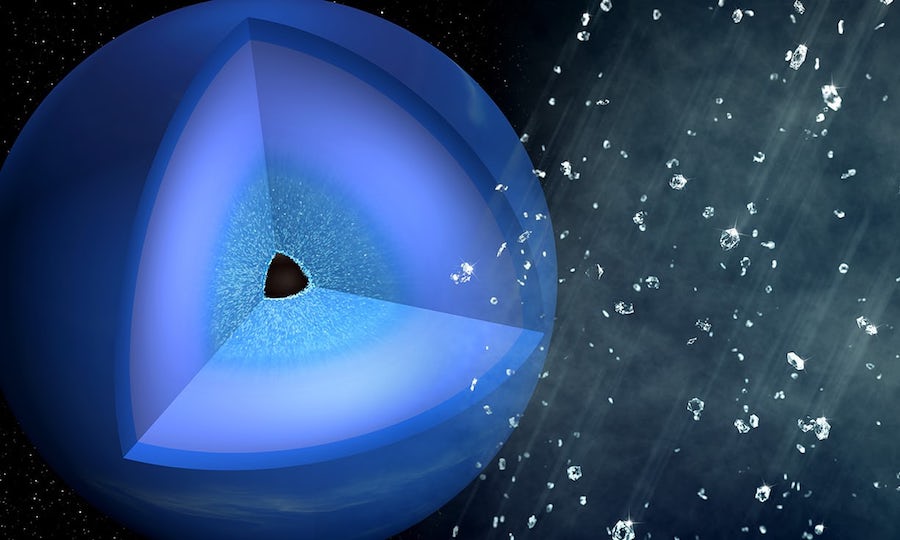Scientists figure out how to make it rain diamonds

Scientists have just achieved what it seemed impossible — they have successfully recreated conditions present in Neptune and Uranus to make it rain diamonds.
The team, formed by American, British and German researchers, were able to mimic environments found deep inside those two icy giant planets of our Solar System and watched as tiny diamonds formed.
The team of researchers successfully recreated conditions present in Neptune and Uranus, and made diamond rain happen.
In an article published in Nature Astronomy, the group reveals how they fired very powerful lasers at polystyrene — a substitute for the hydrocarbons found within the two planets.
They used one of the world’s brightest machines to see the diamonds, which belongs to the SLAC National Accelerator Laboratory at Stanford University.
“You need these intense, fast pulses of X-rays to unambiguously see the structure of these diamonds, because they are only formed in the laboratory for such a very short time,” Siegfried Glenzer, professor of photon science at SLAC and a co-author of the paper, said in a statement.
Scientists have long believed that the extreme high pressures on Neptune and Uranus would squeeze carbon atoms in the atmosphere, triggering a diamond rain. But until now, nobody had ever watched it happen.
On Uranus and Neptune, the study authors predict that diamonds would become much larger, maybe millions of carats in weight.

The Matter in Extreme Conditions instrument at SLAC gives scientists the tools to investigate the extremely hot, dense matter at the centers of stars and giant planets. (Image: SLAC National Accelerator Laboratory.)
“Previously, researchers could only assume that the diamonds had formed,” Dominik Kraus, scientist at Helmholtz Zentrum Dresden-Rossendorf and lead author said in a statement. “When I saw the results of this latest experiment, it was one of the best moments of my scientific career.”
Kraus said the outcome suggests there is not necessarily a pure diamond core inside Neptune and Uranus, but certainly “a large diamond envelope around the rocky cores that are supposed to exist inside those planets,” Gizmodo reported.
The next step for the researchers is applying the same method to look into the interior of other types of planets.
“We can’t go inside the planets and look at them, so these laboratory experiments complement satellite and telescope observations,” Kraus concluded.
{{ commodity.name }}
{{ post.title }}
{{ post.date }}




Comments
LAMB
Never mind trying to Mine Asteroids – mine for Diamonds on URANUS or NEPTUNE – at $5-6000/carat, it would be worth more than Nickel or Iron from an Asteroid..